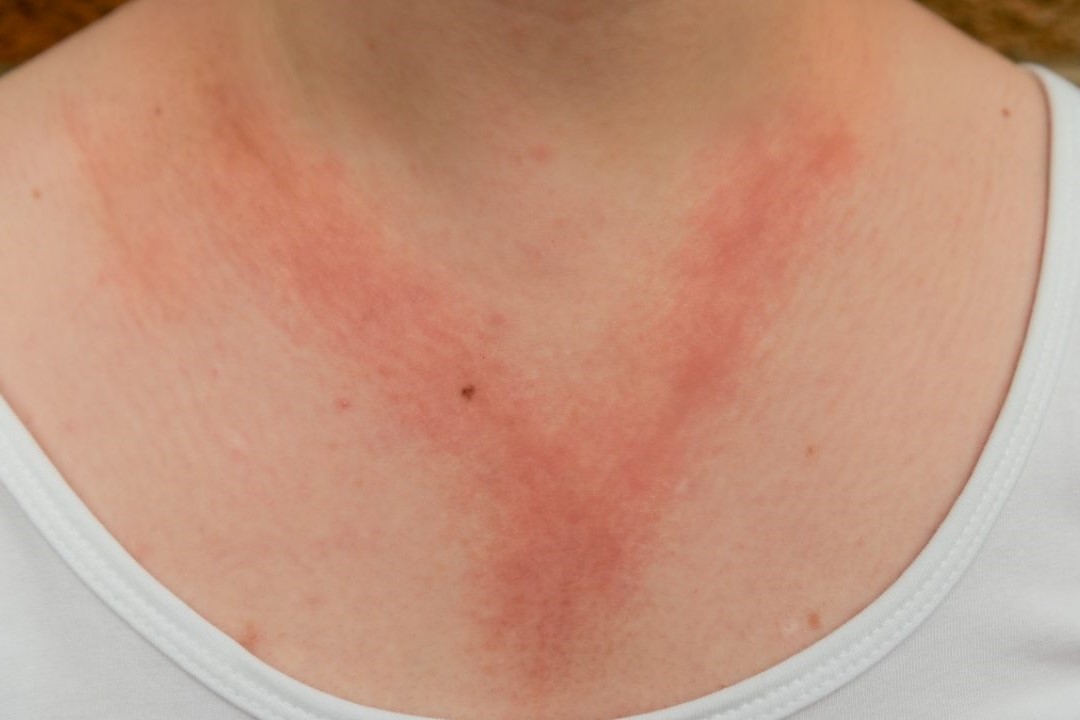
Contact dermatitis: causes and symptoms
Contact dermatitis is triggered when a substance recognised as ‘adverse’ comes into contact with the skin, triggering a defence reaction that stimulates an inflammatory and itchy immunological response from the body
Contact dermatitis: the causes
Contact dermatitis – also called contact eczema – is generally caused by the interaction of the skin and mucous membranes with an irritant substance or allergen.
The former is called irritant contact dermatitis and is the most common type of dermatitis, where the outer skin cells are damaged by direct exposure to substances with an irritant action, such as solvents, detergents, soaps, bleach, hair dyes, wool, etc.
Allergic contact dermatitis, on the other hand, is an inflammatory process of the skin triggered by an immune reaction in hypersensitive individuals exposed to an allergen they have previously come into contact with.
The most common allergens are contained in cosmetics, personal care products, perfumes, detergents, drugs, pollen, chemicals such as nickel, etc.
How does contact dermatitis manifest itself?
Irritant contact dermatitis usually occurs on areas of the body that have been directly exposed to the substance, with the appearance of
- rough and tight skin
- swelling, pain and burning
- erythema, blisters and vesicles.
Symptoms associated instead with allergic contact dermatitis include sudden skin manifestations characterised by:
- redness, burning and abrasions
- hives and extreme itching
- swelling, especially of the eyes and face.
Unlike the irritative forms, the manifestations of allergic dermatitis are not localised only in the area of contact but may later extend to other regions of the skin apparently not exposed to the allergen.
When to contact a doctor?
Most cases of contact dermatitis regress spontaneously within about three weeks, provided the substance that caused the rash is avoided.
If, on the other hand, symptoms develop worsening over time, become more widespread, show signs of infection or create severe discomfort in performing normal daily activities, it is essential to consult a doctor.
Read Also:
Emergency Live Even More…Live: Download The New Free App Of Your Newspaper For IOS And Android
Pityriasis Alba: What It Is, How It Manifests Itself And What Is The Treatment
Atopic Dermatitis: Treatment And Cure
Psoriasis, A Disease That Affects The Mind As Well As The Skin
Allergic Contact Dermatitis And Atopic Dermatitis: The Differences
Adverse Drug Reactions: What They Are And How To Manage Adverse Effects
Symptoms And Remedies Of Allergic Rhinitis
Allergic Conjunctivitis: Causes, Symptoms And Prevention
What Is And How To Read The Allergy Patch Test
Eczema Or Cold Dermatitis: Here’s What To Do
Psoriasis, An Ageless Skin Disease
Clinical Manifestations Of Atopic Dermatitis
Dermatomyositis: What It Is And How To Treat It


